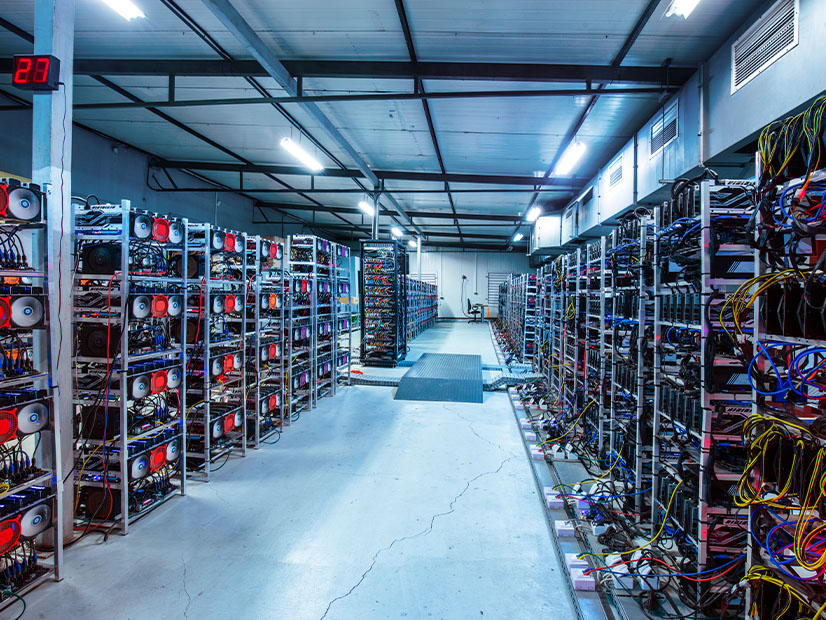Northern Virginia legislators on Jan. 14 introduced a package of bills to address growing demand from data centers that they hope to pass in a short session that is scheduled to adjourn next month.
“Data centers have been operating without guardrails in the commonwealth, and the costs are being shouldered overwhelmingly by a handful of districts, including mine,” said Sen. Russet Perry (D), whose district covers parts of Arlington, Fairfax and Loudoun counties, the last of which is home to so-called “Data Center Alley.”
“We want Virginia to remain a leader in innovation and technological advancement, but there remains a dire and pressing need to ensure the preservation of our resources and protect the pocketbooks of our constituents,” she continued. “It’s not easy to strike that balance, but this legislative package does just that.”
Virginia is home to the largest concentration of data centers in the world, and growth in the sector is on pace to double overall demand for power in the next decade. It could cause the average residential customer’s electricity bill to rise by $37/month by 2040, Perry said at a press conference in Richmond.
All of the bills to address data center growth last session were effectively put on hold so the Joint Legislative Audit and Review Commission (JLARC) could publish a report on the sector’s impact, Perry said. That report was released in December. (See Virginia Legislature Report Tackles How to Meet Demand from Data Centers.)
The legislative package picks up some recommendations from the JLARC report. Its backers divided their effort into four pillars: protecting families and businesses (cost allocation), enhancing transparency around development, responsibly managing resources and incentivizing efficiency.
Perry and Sen. Richard Stuart (R) introduced Senate Bill 960, with the companion House Bill 2101 being introduced by Dels. Michelle Maldonado (D) and Michael Webert (R). They would require the State Corporation Commission to ensure that other customer classes do not subsidize data center growth.
“What we have seen, at least in my district, is that we are going to inherit quite a bit of infrastructure due to our growing energy needs,” said Webert, whose district covers parts of Fauquier and Culpeper counties, just south of Loudoun. “And my constituents are very, very much concerned about that, and so that’s one of the reasons why I agreed to co-patron the piece of legislation with Michelle. Comprehensive action from the General Assembly in the form of recognizing data centers as a unique customer class and assigning their share of cost seems like a fair thing to do.”
The transparency pillar would be fulfilled by HB 2035, which would require the Department of Energy Quality to track and publish energy, water and emissions data from data centers above 30 MW. The other bill in the pillar, HB 1601, would require large data centers applying for local permits to offer more data on noise impacts and the local utility to update localities on any new infrastructure required.
Responsibly managing resources is covered by HB 2027, which would require the SCC to review applications for any high load facilities with demand above 25 MW. The process would have to review grid reliability, cost impacts, economic contributions of the facilities and the demand’s impact on Virginia’s energy and environmental policies.
Del. Rip Sullivan (D) and Sen. Creigh Deeds (D) are working on legislation that would link tax incentives for data centers to energy efficiency and renewable energy procurement for the fourth pillar, but those bills have yet to be filed.
“I haven’t spoken with the governor directly about this, but what I will say is that we are not trying to say, ‘No data centers,’ or anything like that,” Perry said. “But what we are trying to say is that our communities deserve a seat at the table.”
The forecasted growth for the sector is unsustainable, she added.
Gov. Glenn Youngkin (R) briefly touched on data centers in his annual State of the Commonwealth speech Jan. 13 before the General Assembly, noting they support 74,000 jobs, $9.1 billion in GDP and billions in revenue that localities use for education, public safety and other services.
“We should continue to be the data center capital of the world and make sure Richmond is doing what is necessary to support that goal,” Youngkin said. “Different communities will make different decisions on data centers, but these must be their decisions. And Richmond should not stop them from capitalizing on these incredible economic opportunities.”
The Data Center Coalition, an industry trade group, said it looked forward to working with legislators this session to ensure the continued responsible growth of the sector. In a statement from its president, Josh Levi, the group said that the JLARC report validated Virginia’s leadership in data centers.
“The report notes the many local, state and federal agencies that oversee policies and regulations surrounding data center development and are empowered to protect Virginians while managing potential environmental and community impacts,” Levi said. “JLARC also confirmed that data centers currently pay the full cost of service for the energy they use and suggests the State Corporation Commission has the technical expertise and is best positioned to ensure this continues as additional generation and transmission are deployed to support economic growth.”
The Piedmont Environmental Council supports each of the bills that have been introduced, noting that unconstrained growth of data centers could lead to peak demand of 60 GW by 2050, which is nearly three times its current peak of 22 GW.
“Now is the time for action. Without state oversight and increased local disclosures, we are headed for a catastrophic collision of unprecedented energy demand and a shortage of generation capacity,” PEC President Chris Miller said in a statement. “Dominion is signing contracts for power it does not have and does not have a realistic plan for providing. Right now, our state’s leaders are playing a game of chicken with our energy grid.”




